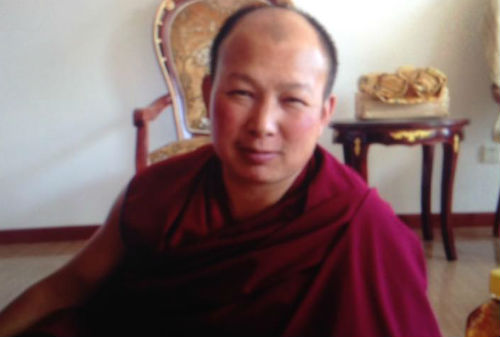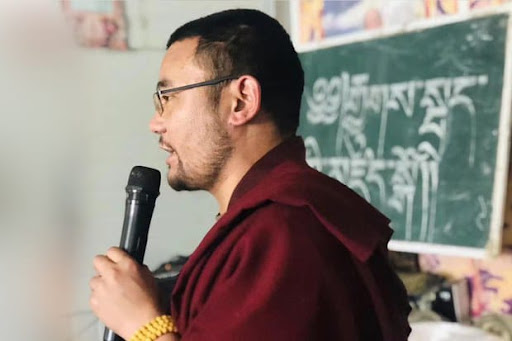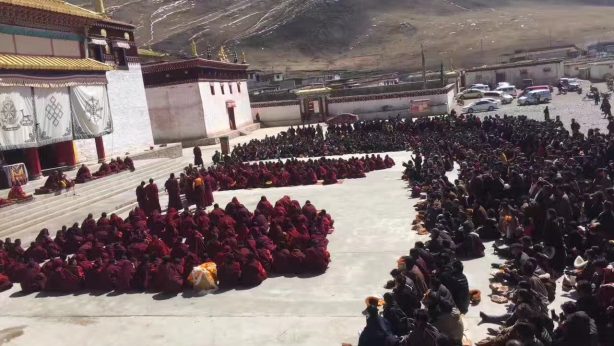Tibetan monk detained on suspicion of possessing and sharing Dalai Lama’s photos
 Chinese security forces detained a Tibetan monk from Rongwo Monastery on suspicions that he had kept the Dalai Lama’s photos on his mobile phone and shared them with friends online in Rebgong (Ch: Tongren) County in Malho (Ch: Huangnan) Tibetan Autonomous Prefecture, Qinghai Province.
Chinese security forces detained a Tibetan monk from Rongwo Monastery on suspicions that he had kept the Dalai Lama’s photos on his mobile phone and shared them with friends online in Rebgong (Ch: Tongren) County in Malho (Ch: Huangnan) Tibetan Autonomous Prefecture, Qinghai Province.
The monk, Chophel, 46, was detained from his monastery on 10 July 2015. Almost two months after his arbitrary detention, he is still being held at a detention centre in Dragmar in Rebgong County.
Although the police have not given any reason for his sudden detention, local Tibetans suspect that he was arrested for possessing images of the Dalai Lama on his mobile phone.
“He might have been arrested for keeping images of the Dalai Lama in his mobile phone, and sending these images to his friends,” said the source.
Chophel was born in Gomar Village in Nyenthog (Ch: Nianduhu) Township in Rebgong County, located in Amdo Province in Eastern Tibet. He became monk at a young age, joining Thoesam Norling College at Rongwo Monastery. At the time his detention, he was a student of the Vinaya class.
TCHRD condemns the arbitrary nature of Choephel’s detention and calls on the Chinese authorities to release him immediately. The suspected ‘crime’ for which he was detained is without any legal basis since freedom of religion and belief is a right recognized in Chinese Constitution as well as International Human Rights Law. Tibetan Buddhists consider the Dalai Lama as the manifestation of Avalokitesvara, the Buddha of Compassion, and their protector for present and future lives. In Tibet, religion is a fundamental part of Tibetan society and culture. Keeping photos of Dalai Lama and worshipping him is not a crime but an act of faith and belief.
By labeling acts of religious belief as criminal or harming stability, Chinese authorities actively violate religious freedom of Tibetan Buddhists. The persecution of Tibetan Buddhists on the pretext of “maintaining stability” has caused more instability in the lives of local Tibetans. China must realise that genuine stability comes not from repression but from respecting the rights of the Tibetan people, including their right to religious freedom and belief.


